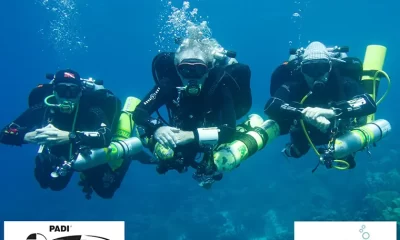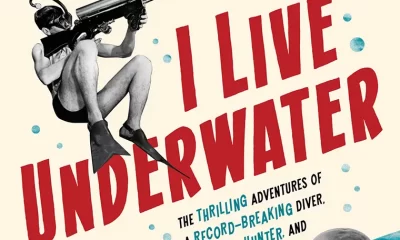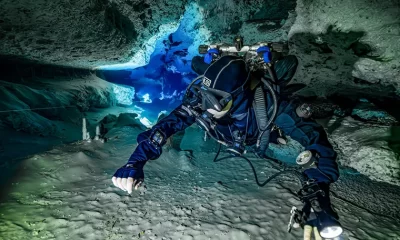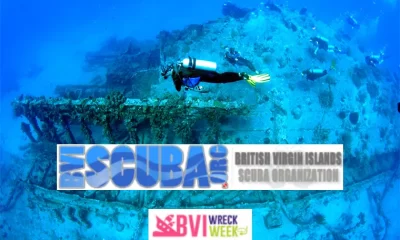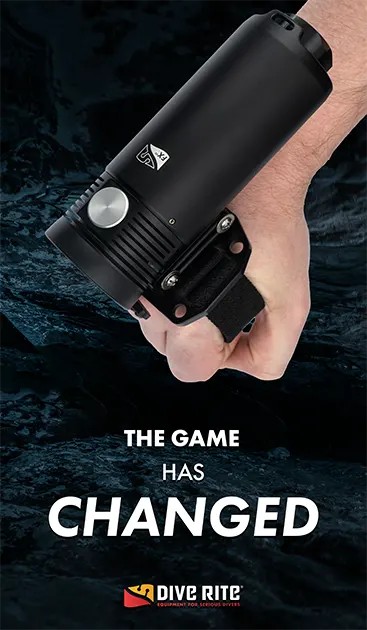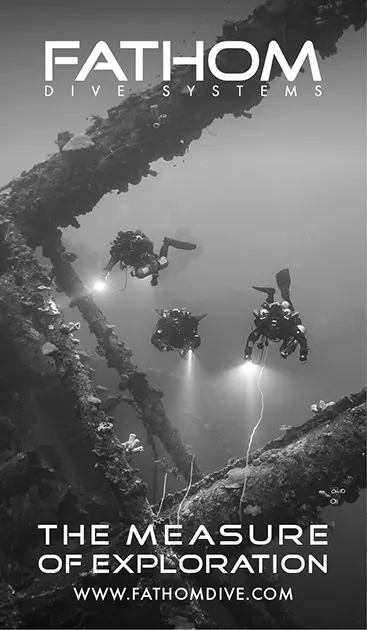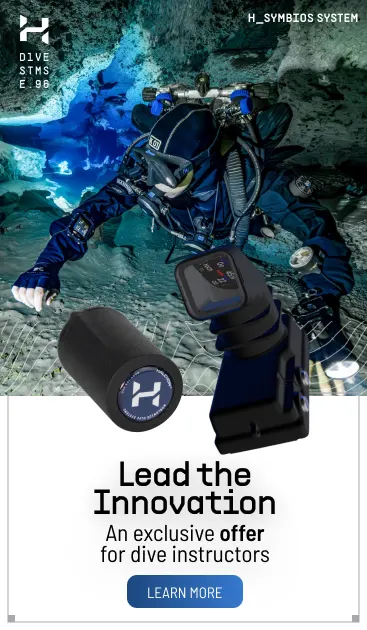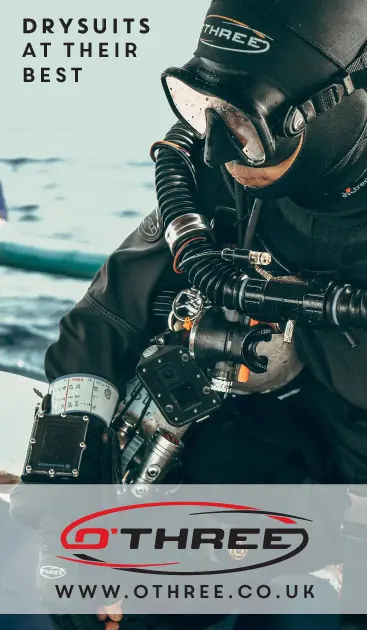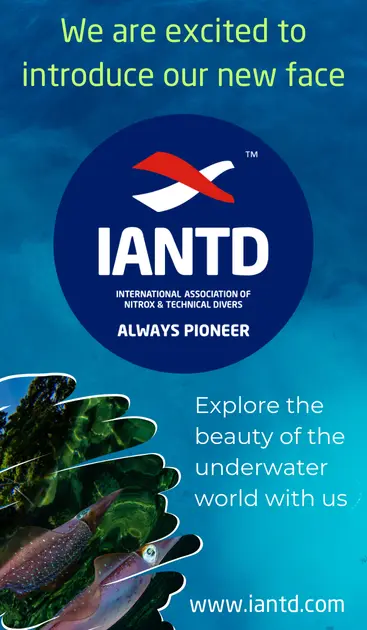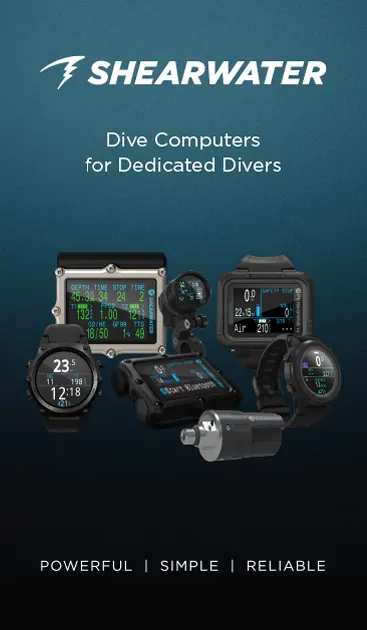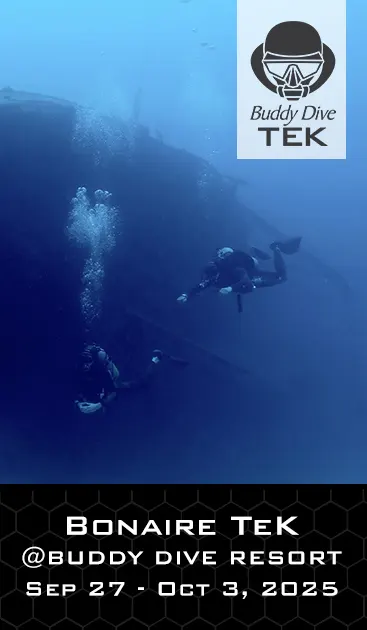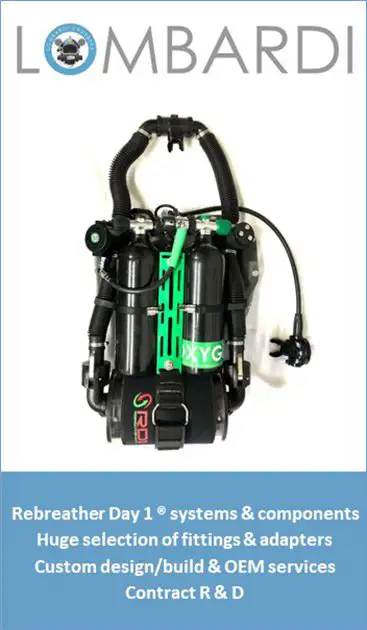News
Paul Watson is Free, Whaling Continues
A Dive into the Legal and Political Tensions
By Helene-Julie Zofia Paamand. Photos courtesy of the author, Sea Shepherd France and or others as noted.
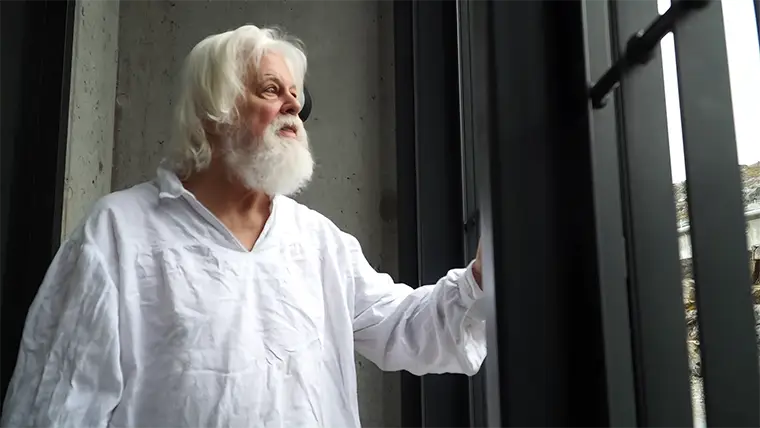
On December 17, 2024, Canadian-American Paul Watson, founder of Sea Shepherd and contributor to InDEPTH Magazine, was released from prison in Nuuk, Greenland after 149 days of detention. Watson was arrested by local police on July 21 while aboard the M/Y John Paul DeJoria; the ship had departed from Dublin on July 12 en route to the North Pacific to target the Japanese whaling vessel Kangei Maru. During their stop in Nuuk, the crew of M/Y John Paul DeJoria intended solely to refuel. Greenlandic police arrested Watson more than a decade after Japan filed an Interpol Red Notice—an international arrest warrant. However, since Watson’s Interpol file had not been publicly accessible since November 2023, he believed he could safely disembark and refuel in Greenland.
In this article, I will break down the events surrounding Watson’s arrest and the ongoing developments through the second half of 2024. To provide clarity on the legal complexities of the case, I interviewed Sascha Faxe, a member of the judicial committee of the Danish Parliament.

Why Was Watson Red-Listed by Interpol?
Japan issued the Red Notice against Watson in 2010; at the time, Sea Shepherd had been campaigning against whaling practices by Japanese vessel Shonan Maru 2 in the South Pacific.Although whaling is prohibited in international waters under the 1946 International Whaling Commission (IWC) agreement, Japan has continued the practice under the guise of scientific research—a stance critics argue is a loophole for commercial whaling.
During the 2010 campaign, New Zealander Pete Bethune, a then-Sea Shepherd member aboard the Ady Gil, used stink bombs against the Shonan Maru 2, temporarily incapacitating the crew. As a result of Bethune’s actions, the two vessels collided. When Bethune later boarded the Japanese ship to present a petition for damages, he was arrested. While an Animal Planet film crew documented the events, Watson can be seen warning Bethune against boarding the Japanese ship. Bethune’s subsequent confession implicated Watson as the mastermind behind his actions. However, in 2013, Bethune admitted that his confession had been false: made under pressure from Japanese authorities to reduce his own sentence.
With the legal ammunition of this false confession, Japan requested a Red Notice against Watson for conspiracy to damage personal property and obstruct business operations. The notice has since expired several times, leading some to assume that it was no longer active; as of November 2023, it was no longer accessible to the public. However, the file may have been classified.
Who Committed the Crime: Japan, Bethune, or Watson?
In 2012, Australia and New Zealand filed charges against Japan at the International Court of Justice in The Hague; they argued that Japan’s whaling was not a scientific but, rather, commercial enterprise. The court ruled in favor of the plaintiffs, deeming Japan’s actions illegal under the IWC. As such, Japan was convicted for its whaling practices while Bethune was convicted in Japan for his role in opposing them.
Although Watson was implicated in the actions, Japan’s Red Notice remains controversial. While Japan has the legal right to request it, it is up to individual countries to decide whether or not to comply with the arrest. Over the years, Watson has managed to evade arrest in several countries. So, why was he detained in Nuuk?
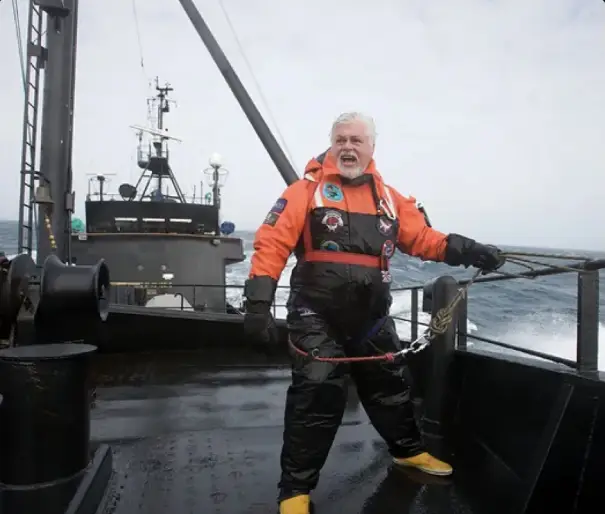
The Motivation Behind Watson’s Arrest in Nuuk
In the summer of 2024, Watson’s organization was actively documenting whaling practices in the Faroe Islands. The hunt for pilot whales, known as the Grind, is a long-standing cultural tradition in the Faroes that dates back to Viking times. Whale meat was once an essential food source; today, whale meat consumption has become increasingly controversial due to heavy metal accumulation in the meat (and the associated health risks). The Grind has also evolved; while participants once used small rowing boats, they now partake in an industrial-scale operation involving motorized boats. These changes clearly make the practice more efficient, but they also raise ethical concerns.
International environmental activists have intensely pressured the Faroese government, and Watson has documented the Grind for decades. The tension between environmental activists and the Faroese authorities has been building for years. Whaling is legal in the Faroe Islands under their independent law despite their status as a territory of the Kingdom of Denmark (where such practices are illegal).
During a consultation in the judicial committee in September 2024, Danish Justice Minister Peter Hummelgaard revealed that the Faroese authorities had been tracking Watson’s movements. When they learned that Watson’s ship was en route to the North Pacific via Greenland, they shared this intelligence with Greenlandic authorities. The Greenlandic police, supported by Danish officers, executed the arrest. While the extent of Danish government involvement is unclear at this stage, it is evident that the Faroese authorities motivated the arrest.

The Political Implications of Watson’s Detention
Sascha Faxe (Danish MP) has closely followed Watson’s case. Faxe speculates that the arrest might be politically motivated and suggests that the Faroe Islands may wish to see Watson extradited to legitimize their own whaling practices as well as Japan’s. “One could think that the Faroe Islands have an interest in his extradition,” Faxe told me. “That would indirectly legitimize Japan’s whaling and, by extension, the Faroese practice.”
Faxe also noted that Greenlandic law requires that anyone extradited must be guaranteed a fair trial in the destination country. The fear of Watson facing political persecution in Japan could potentially hinder the extradition process, especially considering Japan’s high conviction rate.
The Role of Denmark’s Justice Minister
Greenland and the Faroe Islands, while being territories of the Kingdom of Denmark, have their own governments and legal systems. This autonomy means that Greenlandic law is applicable in Watson’s case. Following his arrest, the authorities awaited Japan’s formal extradition request; upon receipt, they forwarded that request to Danish Justice Minister Hummelgaard. Greenlandic extradition law predates Greenland’s independence and still reflects Danish law. Since gaining legal independence in 2009, Greenland has not rewritten its extradition law, leaving the outdated law still applicable. This law states that the jurisdiction for extradition falls under the Danish Minister of Justice.
During the consultation in September, Hummelgaard stated that he would follow the Greenlandic authorities’ recommendation regarding Watson’s extradition. However, on the day of his release, Watson’s Danish lawyer Jonas Christoffersen revealed that both the Greenlandic police and the attorney general of Greenland recommended extradition while the Danish Ministry of Justice did not concur. Thus, while the Greenlandic extradition law was outdated, this ultimately worked in Watson’s favor: the jurisdiction remained in Denmark.
This leads me to believe that the pressures on Hummelgaard and Denmark have actually influenced the decision-making process, even though we will likely never get Hummelgaard to admit this. Hummelgaard told the Danish national news media, Danmarks Radio, that the case was prolonged due to the complicated extradition law and the negotiations with Japan taking time.

All eyes on Denmark
Watson’s detention has garnered significant international media attention, yet it has largely been overlooked in Danish media. While the case is somewhat obscured in Greenland, Denmark remains a key player in the situation. Many foreign politicians have expressed their support for Watson—a man who has dedicated his life to advocating for the protection of ocean giants. Despite international treaties like the IWC, there is no one effectively enforcing these laws in international waters.
On July 24, Danish Prime Minister Mette Frederiksen received an official letter signed by 73 international politicians from 10 countries urging Watson’s immediate release. The letter emphasized that this case represents “the repression and criminalization of environmental activists around the world—including in Europe,” as stated by initiating author and French MEP Emma Fourreau.

On September 19, Watson’s potential extradition was debated in the European Commission; nearly all speakers agreed that Watson was upholding international law in his actions against Japan. They argued that he should be considered a whistleblower and protected under EU laws including the Anti-SLAPP Directive and the Environmental Crime Directive, both adopted earlier that spring. The only dissenting voice came from Siegbert Frank Droese, a member of the German AfD party who controversially compared Watson to al-Qaeda founder Osama bin Laden.
The French Socialist Party also called on French President Emmanuel Macron to urge Japan to drop its extradition demands. Watson has also asked for asylum in France. Although Macron has expressed support for Watson, Macron can’t offer protection as Watson is not a French citizen. Consequently, Watson has applied for French citizenship, though the decision is still pending. However, on December 10, Watson was granted honorary citizenship by the city of Paris. While this title does not carry legal rights, it serves as a clear and symbolic statement from the city in support of his cause.
Whaling continues in Japan
In 2019, Japan withdrew from the International Whaling Commission and, in the years that followed, resumed whaling in its own waters. By 2024, Japan had significantly expanded and strengthened its whaling fleet with the addition of the Kangei Maru—an addition that Watson initially wanted to campaign against. In June 2024, Japan landed 59 fin whales; fin whales are the world’s second-largest whale species, and they are classified as endangered by the International Union for Conservation of Nature (IUCN). While Watson has been in detention in Nuuk, Japan has continued its illegal whaling operation unhindered. But, as Watson said in an interview to Danmarks Radio on the day of release, “Every situation opens for an opportunity and my detention has exposed the whaling practices of both Japan and the Faroe Islands.”
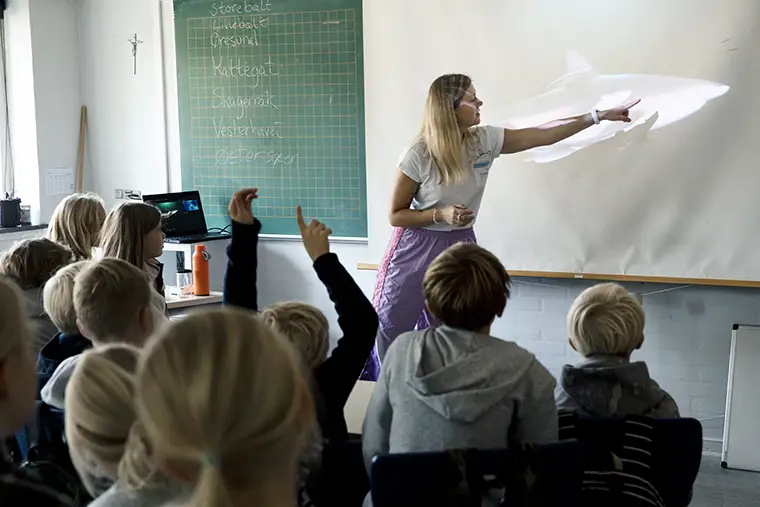
How Can We Support Watson’s Case?
For now, Watson is free and can continue the fight. One could even claim that his work has been sanctioned not only by Denmark but also, for sure, by the many political supporters who have expressed their demands for his release. But how can we, as an international community of concerned divers, contribute to his lifelong fight and show our support? I asked Sascha Faxe this question, as she has deeper insight as to what type of activism creates political pressure.
Faxe believes we need to use cultural and artistic measures. She proposes an idea she believes could have a significant impact, though she’s unable to organize it herself: “If someone could arrange a support concert, it would draw a lot of attention. It would also allow people who might not identify as activists to get involved. A concert featuring several international artists—held at a public venue to honour and celebrate Watson and the whales—would be a powerful statement.”
Faxe’s idea is ambitious, but who knows? Perhaps it will be picked up by someone with the means to bring it to life. Personally, I believe it would generate a lot of positive, constructive energy. But what we do in our everyday lives matters as well; we should be talking about topics like these with our friends and relatives. While Watson fights on the water, you and I can be wavemakers in the communities around us.
DIVE DEEPER
InDEPTH: The Looming Environmental Apocalypse: Deep Sea Mining by Paul Watson
InDEPTH: Can We Save Our Planet? What About Ourselves? Interview With Sea Shepherd founder Paul Watson by Amanda White
InDEPTH: Book Review: “We are the Ocean,” by Captain Paul Watson by Amanda White
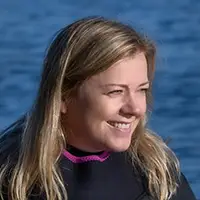
Helene-Julie Zofia Paamand is an underwater photographer and environmentalist from Denmark. After working as a professional dive instructor in tropical countries, she returned to Denmark and founded the concept and brand Underwaterambassador. Through this self-proclaimed title, she uses her underwater photography to raise awareness about ocean conservation within her local community. She does this by giving school presentations and collaborating with NGOs that organize clean-up events, seagrass transplantation projects, and stone reef restoration efforts. Her goal is to equip both divers and non-divers with practical tools they can implement in their everyday lives to help protect the ocean.
In the summer of 2024, when Watson was detained, Helene’s frustration with the Danish media’s limited coverage of the case motivated her to follow it closely and write an article on the subject. Helene has also contributed articles to various other dive magazines.
You can find Helene online at www.underwaterambassador.com and on Instagram as @Underwaterambassador. Portrait photo courtesy of Britt Montesinos.


